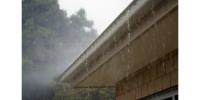 Add My Company
Add My Company
Sign In
Do Landlords Have to Deal with Mould?
28-11-2019

So, you’re renting a place and you start noticing the dreaded mould beginning to grow. Unfortunately, most of us have been there, but who needs to fix the problem? Is it the tenant that has to face this irritating inconvenience, or does a landlord have any responsibility here? There is often confusion about who is responsible for mould, but really, it actually depends on why the mould is growing, which negotiates that responsibility. Read on to find out your options when it comes to mould.
When is Mould a Landlords Responsibility?
Mould is definitely a landlord’s responsibility if it has been caused by rising or penetrative damp in the property. This is because rising damp and penetrative damp are both caused by an issue with the property’s structure.
Rising damp affects many properties across the UK and can appear in several different forms. But how does it get there? Rising damp occurs when water in the ground, from below a building gets drawn up through the porous materials of a building such as bricks and mortar. This could happen because properties of the buildings built-in damp-proof barrier has been compromised, which inhibits damp being drawn up from the ground.
Penetrating damp is also caused by structural failures. An example of this would be a leaky gutter, which would allow water to seep through into a building’s exterior, causing water damage.
When is Mould a Tenants Responsibility?
Mould is a tenant’s responsibility when it is caused by issues such as condensation, which is reflective of a tenant’s lifestyle. Condensation is actually the leading cause of damp in the home, which leads to mould growth. Activities such as hanging up washing inside, having a shower, boiling a kettle or cooking dinner create lots of moisture, that usually has no-where to escape. This settles as condensation, which can then cause mould to develop. It’s also worth noting that the more people there are occupying a property, the more moisture is released into the air!
Condensation needs to be kept on top of by a tenant in order to prevent it from creating mould.
Tenants can help this issue by making sure condensation has a place to escape when it’s been released into the air. They can do this by opening windows and properly ventilating a property throughout, most of the day, and also during or after particularly steamy activities, such as a shower.
Damp ideally needs to be properly diagnosed by an expert to understand what the cause of it is, especially before mould can start growing and causing a problem.
For more information on Do Landlords Have to Deal with Mould? talk to Advanced Chemical Specialties Ltd
Enquire Now
List your company on FindTheNeedle.

